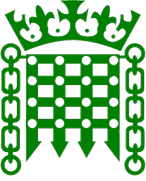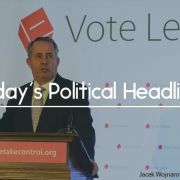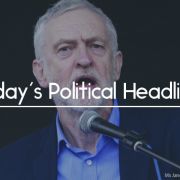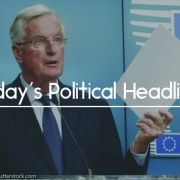Political Headlines – Extradition request, Labour plot, child abuse and Brexit warning
Today’s Political Headlines include the extradition request for Russian nerve agent suspects, the Labour plot in a Sussex B&B, tougher sentences for downloading child abuse images and the no deal Brexit warning from police chiefs.
UK ready to submit extradition request for Russian nerve agent suspects
In an exclusive, The Guardian asserts that the UK is about to submit an extradition request to Russia for two people suspected of carrying out the nerve agent attack in Salisbury. The paper claims that the move follows months of investigation by the police and the security investigations and that the Crown Prosecution Service has now completed its process and is ready to file its request, although a ‘scornful response’ is expected from Russia.
Labour moderates plot at luxury Sussex venue
The Daily Express reveals that a group of around 12 moderate Labour MPs have held at least two away days in a luxury Sussex B&B ‘to discuss how to take back control of the party’. One MP claimed that a plan discussed was to allow Corbyn to win the next election and for the moderates to then form their own party or a separate Labour party in Parliament. Chris Leslie claimed that the meetings were about policy and that Corbyn had not been discussed.
Tougher sentences for viewers of child abuse images
Robert Buckland, the Solicitor General, has told The Daily Telegraph that paedophiles who download child abuse images will face tougher sentences and should be dealt with as harshly as those who abuse children. The offence will be brought into the ‘unduly lenient sentence’ scheme, allowing members of the public to challenge sentences. Official figures show that less than one in four people convicted of the offence goes to jail.
Police chiefs issue no deal Brexit warning to Javid
The Guardian has seen a leaked letter from the Association of Police and Crime Commissioners to Home Secretary Sajid Javid, warning that a no deal Brexit would ‘pose significant risks to our local communities’ and cause ‘a significant loss of operational capacity’. The letter details 32 different measures which rely on EU membership.
May blamed for chaotic no deal preparations
The Daily Telegraph claims that Theresa May is being blamed for ‘chaotic’ preparations for a no deal Brexit. Officials are currently compiling seventy technical notices to explain what firms and self-employed workers need to do to prepare, but ministers have complained that they were not consulted before the papers were announced, while civil servants are having to create extra documents in order to meet May’s promise.
May holds talks with Sturgeon
The BBC says that Theresa May is to hold talks with Scottish First Minister Nicola Sturgeon today. May is in Scotland to launch the Edinburgh and South East Scotland city deal and will also visit the Edinburgh Festival. Ahead of the meeting, Sturgeon has called on May to set out her ‘plan B’ if European leaders reject her Brexit proposals.
Labour abandons action against Hodge
The Times reports that Margaret Hodge has accused the Labour Party of lying in its explanation for the abandonment of the disciplinary action against her. She rejected the suggestion that the investigation had been dropped because she had expressed regret to the party’s chief whip, Nick Brown. She admits telling Jeremy Corbyn that he was ‘perceived as being antisemitic’ but denies swearing at him.
Truss calls for planning restrictions to be lifted
The Daily Mail says that the Chief Secretary to the Treasury, Liz Truss, is facing a ‘furious backlash’ after she called for more houses to be built on greenfield sites and for planning rules to be liberalised, allowing houses to be extended upwards without planning permission. She claimed that if this did not happen, Corbyn would win the next election.
Don’t miss out on the political developments that matter to you. Find out more about Vuelio Political Services.



 Government Departments
Government Departments
 House of Lords
House of Lords Northern Ireland Government
Northern Ireland Government 


























 What makes your blog unique?
What makes your blog unique?


 Stimson has been at the forefront of the Taylor Bennett Foundation’s work for many years and is a popular figure in the industry. Among her many achievements as CEO, Stimson has seen the Foundation become the PRCA’s charity of the year, quadrupled the number of people it supports and made it more financially sustainable.
Stimson has been at the forefront of the Taylor Bennett Foundation’s work for many years and is a popular figure in the industry. Among her many achievements as CEO, Stimson has seen the Foundation become the PRCA’s charity of the year, quadrupled the number of people it supports and made it more financially sustainable.


